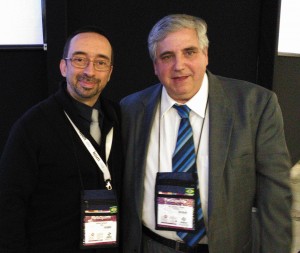ABED Congress. Post #3: Is peer-review the best evaluation process?
In chat with Hal Plotkin, from Creative Commons, he supported the post-publication validation from the users, instead of the pre-publication peer-review from the editors. Furthermore, if a publication is thoroughly written and honestly written, and it is accurate, the end-users will validate the usefulness and impact of that publication. This process faces opposite to the usual scientific peer-review flow, where other academic members evaluate whether the publication is good enough for a journal, no matter what the end-users can say.
Peer-review is thorough and partial and it depends on the reviewers and it is slow. But good papers could come out of that discussion.

Certainly, this is fast-track on editing and publishing and brings a long-time discussion: is it really useful a blind-review paper that almost nobody will read, eventually? Or is it more useful a direct publication in a good pipeline where the users can access and read? For sure, there are pros and cons about both processes. What is clear is that both can be combined. Peer-review is thorough and partial and it depends on the reviewers and it is slow.

From the round table of day 1, when discussing with Hal Plotkin and other colleagues in the main auditorium
But good papers could come out of that discussion. Direct publication reaches the public immediately, encourages active discussion about hot topics and it can bring good papers too. Sticking to a single, academic, and too heavy process does not seem to be healthy. New ways of communication require new processes (or adapted ones) so that we make sure that the message reaches the target public timely and with excellent quality.
Daniel Burgos
Aguas de Lindoia, Sao Paulo, Brazil. September, 21st, 2016
22nd International Congress of Distance Education CIAED
